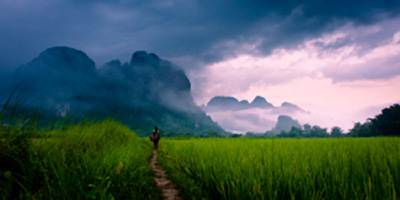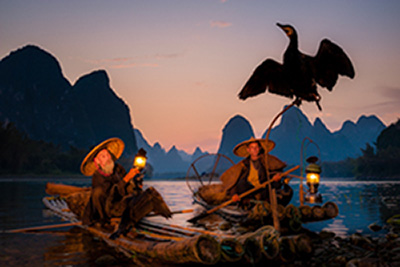
|
|
|||||
|
Featured Photographer, January 2014: Dan Ballard
We want to thank our featured guest photographer this month, Dan Ballard! We appreciate his time and effort to answer our questions, and to share some of his incredibly beautiful work with us! Please visit his links to see more of his inspiring work, and to let him know you enjoyed this interview. :: How did you get your start with photography? My family owned a photography studio when I was growing up, so it was something I have always been involved with. Although I didn't really start shooting myself until I went to New Zealand when I was 16, I had the basics down long before that. After New Zealand I really got the travel bug and started traveling every chance I could. After high school stared traveling for six months at a time. At first I really thought I was going to return home with some amazing photos, after all, I had a great camera, I was photographing beautiful locations and I knew how to physically use the camera. How could I not get excellent images? Of course, as so many people learn when they start with photography, there is much more to it than that. It was this realization that I really didn't know anything about creating art or how to capture a location on film that truly started my love for photography. I spent years learning everything I possibly could about creating a better image from both photographers and painters and spent my life shooting basically non stop. It was years after that when I finally felt I was ready to go pro.
:: Having done it for a while, what continues to drive you? Are there parts of the job that you might start to get complacent with? How do you keep each shoot fresh and exciting? There are a lot of things that drive me. The first is the simple love of the challenge. Creating one solid image takes so much time, work and determination. That really makes it worth while. The amount of great work that so many pros and enthusiasts alike are putting out also inspires me. Every time I see an incredible photograph that I love it makes me want to work harder and take my work up a notch. I do get bored with the business side of things. Emails and editing images for stock and that sort of thing. As far as the actual shooting itself goes, as time goes on my standards keep getting higher and it becomes harder and harder to take an image I am happy with. That keeps the things interesting.
:: You focus in primarily landscape and travel work, but also have done some work for clients as well. How do you mix those subjects you do for pleasure with the ones for clients to keep the assignment interesting, and more than just a paycheck? Lucky it has been a few years since I have had to do assignment work that wasn't related to the kind of work I love. I think I would really struggle if I was told I needed to go shoot a subject that I was not interested in or inspired by on a regular basis. As it is almost all of the shooting I do at this point I do for the love of doing it. While shooting what inspires me I will often shoot with stock or print sells in mind, but I never make a trip for those reasons alone.
:: What are the biggest problems with being a travel photographer? I think the biggest challenge is the time restraints. As photographer who is basically shooting landscapes overseas and very little traditional travel photography, I am looking for amazing weather like a traditional landscape photographer. That takes time. The difference is, when I go for a shoot in the US, I have the ability to be at the location over and over again. Even if it is a half way across the country, it is not hard to keep going back. I have been to Moab and the Tetons so many times each I can't even count for example. 30 or 40 times to locations here in Colorado. In comparison, it took me 50 hours to get back home from Kamchatka, Russia, last year and even though I had sponsors which paid for a huge part of the trip, it still cost me thousands of dollars. The weather was terrible for almost all of the two weeks I was there and I didn't get the shots I wanted. I can't just jump in the car and go back. That makes shooting landscapes overseas extremely difficult. The other major issue at least for me is the time spent alone. I just got back from winter camping in Switzerland for example. I spent a big part of three weeks alone in a tent above tree line waiting for light. At times it was really just amazing, but for a social person it can also be tough.
:: What has been the scariest experience you've encountered while shooting? Hmmm. There have been a lot of crazy, scary experiences. I have been held at gun point (twice), robed multiple times, was almost thrown in jail in Syria, and was detained in customs in Iraq for days. The closest I have been to actually dying was in China. Long story short, the car I was in hit black ice in the middle of the night on an exposed mountain road and slid within feet of a cliff. Almost impossible odds that we didn't all die. It took me a while to be able to comfortably ride with someone else on a mountain road in winter. One of the scariest was shooting a major lightning storm in Moab last summer when my hair stood up and my camera started to buzz. Loud. I realized things where probably not good so I went grab my camera and run when I found out that there was so much electricity around I couldn't grab my camera without sparks shooting and buzzing before my hand even touched it. I assumed the camera was fried and got into lightning position which is supposed to transfer the bolt around your heart, but I doubt does anything at all…..and waited. That was scary. The D800 somehow survived that one.
:: What was the best piece of advice, or most eye opening discovery you had while learning the craft? In terms of making an image, I think the idea of finding a subject for the foreground was the most exciting discovery. That one simple idea really changed my thinking. I was always looking at the range of mountains in the distance, or the awesome sunset. When I started learning about adding a foreground subject to tie everything together I think my images took a big leap forward. In terms of business, I think one of the best pieces of advice I received was to find one area in photography and go for it. Don't get distracted shooting weddings or commercial work or anything else. Although I did do a little of that at first (we had a studio and wedding photography business so of course I helped out) I think that advice really kept me on track.
:: Where is your favorite place to shoot? Where do you find most challenging to photograph? I think my favorite place to shoot would have to be the Great Sand Dunes here in Colorado, followed by the slot canyons in Page, AZ. Both places are like playgrounds for photographers. You can turn 360 and find a different intimate photograph anywhere you stop. For someone who normally spends so much time waiting for all of the elements to line up in a grand landscape and may not get a great image in months of work, it is really fun to walk through the dunes or canyons and just shoot. I remember not really wanting to shoot the slot canyons because they have been photographed so often. It took me about ten minutes to be in awe and fall in love with the place. It taught me an important lesson. Shoot what you love. Don't worry about anything else.
:: One gallery I really enjoyed was your 'Western' series, was this a project that started for a client, or how did you get into photographing the cowboy lifestyle? What about it stimulates you photographically? I grew up in a very small town surrounded by ranches in Southeast Colorado. Many of my friends were cowboys and although I didn't own a cowboy hat, I grew up working on my grandpa's ranch. At the time I didn't care, I just wanted to leave and see the world, but after a few years of traveling I started to see just how amazing and rare the cowboy culture is. I thought it would be really interesting to capture it. I haven't done much with my cowboy images business wise, it is just more of a personal project. I really love the look and the feel of the images, and again the challenge of getting them. I shoot a lot of the western stuff with a wide angle lens instead of a tele which is what is normally used. That means getting within a couple feet of the action. You really have to understand the animals and have a good relationship with the cowboys for that to be even remote safe and possible. A lot times I set the camera on automatic closest focus, and continuous burst mode and run through the mess of hundreds of cattle with 20 cowboys on horse back roping with the camera a few feet off the ground pointed up. I have no idea what I am getting. Its a lot of fun. The hardest thing about western photography is getting permission and knowing the right people to shoot. Since I grew up with these people, and my dad and grandpa know literally everyone, it was very easy to arrange.
:: When you teach others, what is the one lesson you hope to leave them with? Teaching is a major love of mine, and I am really happy that I get to spend so much time teaching photography. I hope there are many lessons that people take away, but I think the biggest thing for me is the idea that everyone has the ability. I think so many people have the idea that they are either born with talent and a good eye, or they aren't. I think it is all about hard work and effort. Anyone can be a great photographer if they put in the time it takes to learn, and find amazing conditions.
:: How involved are you with the social media aspect of photography? What benefits and drawbacks do you see with the increasing "necessity" of this side of the business? I am involved, but not to a great extent. That is a tough question. I think it is great in many ways. It can be good for inspiration, and it is nice to keep track of whatever others are doing. However, I think that so many people spend so much time online (even many pros) that they forget to actually do photography. So many of the biggest online photographers don't spend much time in the field at all. I think that is a major problem. Many of my favorite photographers are always out shooting and not online much and most people don't see their work, while the guys who do nothing but social media have mediocre work and everyone sees it. From a business standpoint I think social media can be beneficial and I try to balance shooting time with time spent online, but I mostly just end up shooting and not spending as much time online as I should.
:: In your Black Rapid video, there is talk about patience of being a landscape photographer; how have you worked to develop this skill? What do you do to pass the time when the light is not right, or weather is hampering your creative vision? This is an area where technology really makes life easier. In Switzerland for example, I was traveling with a laptop loaded with movies, an iPad mini loaded with books, movies and music, and phone loaded with audio books. I am a major reader so between being able to read for hours (I also had a real book for when all my batteries died), listening to music and audio books and watching movies you can kill a lot of time without effort. Of course when you are spending all day long in a tent for days at a time and the weather is terrible you still have a lot of time with nothing to do. It can be difficult. When the weather is great you can be out exploring and scouting and that is fun and kills time very easily.
:: Where do you see technology taking photography in the future? Do you prefer a stage where the equipment can DO more, or do you prefer times where the gear did less? I guess what I'm asking is at what point is there too much technology involved with photography? For me the more the gear is out of the way and in the background the better. If you have to think about your gear, and getting it set up you are not thinking about creating art. If I could have a camera that had zero technical limits (depth of field issues, dynamic range restraints, high ISO quietly lose, etc) and all I had to think about (and teach) was creating a great artistic photo and the technical quality was automatically perfect, I would love it. I think the overall level of landscape photography has gone through the roof in the last ten years, and I think that is not because cameras are taking better images, but because photography is now possible and fun for creative types who could care less about messing with a camera. They just want to create. In the past you had to love the technical side of photography (or at least spend a major amount of time learning it) and many of the creatives pursued other mediums. So, I am all for technology making photography "easier". Creating art is still (if not more) personal and challenging and that will not change. All that is changing is how much focus we can put towards art, and how much we have to put towards technically making the image perfect. So, if technology is simply adding more bottoms and menus and bells and whistles then I am not for it. If however, it is making photography more accessible and simplifying the process of getting technically great images that's great. I think it is doing both now, and will continue do both, but simple will win the day in the end and photography will be better for it.
:: If you weren't doing photography, what would be your second career of choice? I would be a teacher without a doubt. If teaching wasn't a big part of my photography business I would probably be teaching high schoolers and doing photography as a hobby really. I really enjoy helping people reach their goals and to come away with new ideas and insights. I love inspiring people to learn more and spend more time mastering what they love. |
"I really enjoy helping people reach their goals and to come away with new ideas and insights. I love inspiring people to learn more and spend more time mastering what they love."
Photographer Spotlight Interviews
|
|
 |
Other Cool Stuff→ Past Workshop Photos → 72dpi.com → How-To Articles → Photographer of the Month |
 |
Contact Us→ Contact Us → About Us → Site Map |
© 2009-2024 Aperture Academy, Inc.









